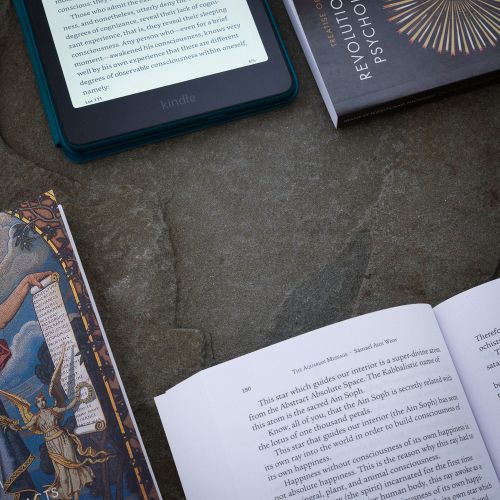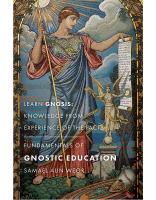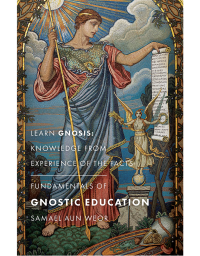To remember is to try to store in the mind what we have heard, seen, read, been told by others, and has happened to us, etc.
Teachers want their students to store in their memory—all with periods and commas—their words, their phrases, what is written in schoolbooks, entire chapters, heavy homework, etc.
To pass tests means to remember what we have been told, what we have mechanically read, that is, to verbalize the memory, to repeat like parrots, cockatoos, or parakeets all that we have stored in our memory.
It is necessary for new generations to comprehend that to repeat—like an audio recorder—all of the recordings made within the memory does not signify the acquisition of deep comprehension. To remember does not mean to comprehend; thus, it is worthless to remember if one has not comprehended. Thus, remembrance belongs to the past; it is something dead, something no longer alive.
It is indispensable, it is essential, and a topic of actuality and palpitating meaning, for all students of schools, colleges, and universities to truly comprehend the deep significance of profound comprehension.
To comprehend is something immediate and direct, something that is vivid and intense, something that we experience very profoundly, and which inevitably becomes the true intimate source of conscious action.
To remember or to recollect is something dead, something that belongs to the past, that unfortunately becomes an ideal, a motto, an idea, an idealism that we want to mechanically imitate and unconsciously follow.
In true comprehension, in profound comprehension, in intimate in-depth comprehension, there is only the intimate pressure of the consciousness, a persistent pressure born from the Essence that we carry within, and that is all.
Authentic comprehension is manifested as spontaneous, natural, and simple action, free from the depressing process of selection; it is pure, without any type of indecision.
When comprehension is transformed into the secret source of action, it is formidable, marvelous; it becomes edifying and essentially dignifying.
When action is based upon the remembrance of what we have read, or upon the ideal we long for, or upon norms of conduct we have learned, or upon experiences we have accumulated within the memory, etc., it becomes calculative; that is, it becomes an action that depends upon the depressing process of selecting options. It is dualistic; it is based on conceptual options that inevitably lead only to error and pain.
The idea of adapting action to memory, trying to modify action so that it coincides with recollections accumulated within our memory, is something artificial, absurd, without spontaneity, that inevitably leads only to error and pain.
Passing tests or passing a school year can be accomplished by any dimwit who has a good dose of astuteness and memory. However, to comprehend studied subjects for examination is something very different: this has nothing to do with memory; it belongs to true intelligence, which must not be mistaken for intellectualism.
Those individuals who want to base all their life’s actions on ideals, theories, and all various, accumulated recollections in their memory’s warehouses, always go around from comparison to comparison, and where there is comparison, there is also envy. They compare themselves with their neighbors; they compare their children and relatives with the children and relatives of their neighbors. They compare their house, furniture, clothes, and all their possessions with the possessions of their neighbors. They compare their ideas, the intelligence of their children with the ideas and intelligence of other people, and so on and so forth; thus, this is how envy appears, which then is transformed into the hidden, twisted source of action.
For the disgrace of this world, the whole mechanism of society is based on envy and the spirit of acquisition. Everyone envies everyone else. We envy ideas, things, people, and we want to acquire more and more money, new theories, new ideas that we accumulate in our memory, new things in order to dazzle our neighbors, etc.
In true, legitimate, and authentic comprehension exists true love, not mere verbalization of memory.
The things that we remember, those things that are confined to our memory, soon fall into oblivion because our memory is unfaithful. Students store—within the warehouses of their memory—ideals, theories, and complete texts that are useless in life’s practicality, because in the end they disappear from their memory without leaving a single trace.
People who live only reading and reading mechanically, who enjoy storing theories within the storerooms of their memory, destroy their mind; they miserably damage it.
We do not pronounce ourselves against true, profound, and cognizant study based on in-depth comprehension. We only condemn the antiquated methods of obsolete pedagogy; we condemn all mechanical systems of studying, any memorization, etc., because where there is true comprehension, remembrance is irrelevant.
We need to study; we need useful books; thus, teachers of school, colleges, and universities are necessary. Likewise, gurus, spiritual guides, mahatmas, etc., are necessary. Nevertheless, it is necessary to integrally comprehend the teachings, and not merely stuff them into the storerooms of our unfaithful memory.
We cannot become truly free as long as we commit the mistake of comparing ourselves with our memory’s stored recollections and with the ideal of what we have the ambition of becoming or not becoming.
When we truly comprehend the teachings we attend, then we do not need to memorize nor transform them into ideals.
True love cannot exist in comparisons of what we are here and now with what we want to become later, where our practical life is compared with the ideal or model to which we want to adapt.
Any comparison is abominable; any comparison brings fear, envy, pride, etc., i.e. fear of not attaining what we want, envy because of the progress of our neighbor, pride because we believe we are superior to others.
What is important in our life’s practicality—whether we are ugly, envious, selfish, covetous, etc.—is not to boast about being saints, but to start from absolute zero, and to profoundly comprehend ourselves as we are, not as we want to become or from pretense.
It is impossible to dissolve the “I,” the myself, if we do not learn to observe ourselves, if we do not learn how to perceive, to comprehend in an efficient and absolutely practical manner what we really are, here and now.
If we really want to comprehend, we must listen to our masters, gurus, priests, preceptors, and true spiritual guides.
Youngsters of this new generation have lost the sense of respect and veneration towards their parents, masters, gurus, mahatmas, and true spiritual guides, etc.
It is impossible to comprehend the teachings when we do not know how to venerate and respect our parents, masters, preceptors, or true spiritual guides.
The simple, mechanical remembrance of what we have learnt by memory—without in-depth comprehension—mutilates the mind and heart, and engenders envy, fear, pride, etc.
When we truly know how to profoundly and cognitively listen, then a wonderful power—free from all mechanical processes, free from all reasoning, free from any remembrance—an extraordinary, natural, and simple comprehension, emerges within us.
If students’ brains are relieved from exerting memory’s enormous effort, then it would be totally possible to teach the structure of the nucleus and the periodic table of elements to secondary students, as well as for a college student to comprehend the law of relativity and quantum physics.
Based on our talks with some secondary school teachers, we comprehend that they are truly, fanatically attached to old, antiquated, and obsolete pedagogy. Thus, they want students to learn everything by memory, even if they do not comprehend it. Sometimes they accept that it is better to comprehend than to memorize, but they insist that physics, chemistry, mathematics formulae, etc., must be recorded in the memory.
It is clear that such a concept is false, because when a physics, chemistry, mathematics formula, etc., is wisely comprehended—not only in the intellectual level but also within the other levels of the mind, namely: unconscious, subconscious, infraconscious levels, etc.—then, it is not necessary to record it in the memory since it becomes part of our psyche and can manifest as immediate instinctual knowledge when the circumstances of life demand it. This integral knowledge grants us a certain type of omniscience that is a kind of objective, cognizant manifestation.
In-depth comprehension within all the levels of the mind is only possible by means of introspective, profound meditation.







